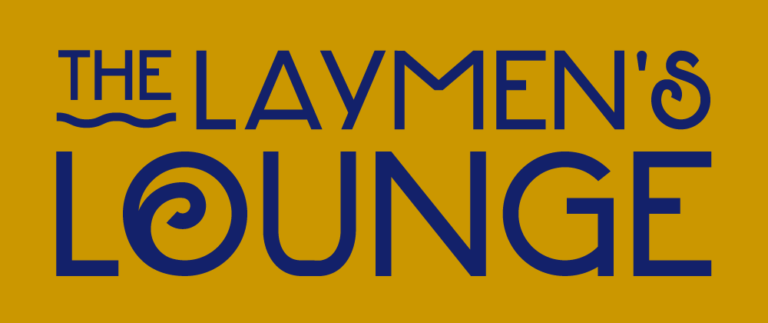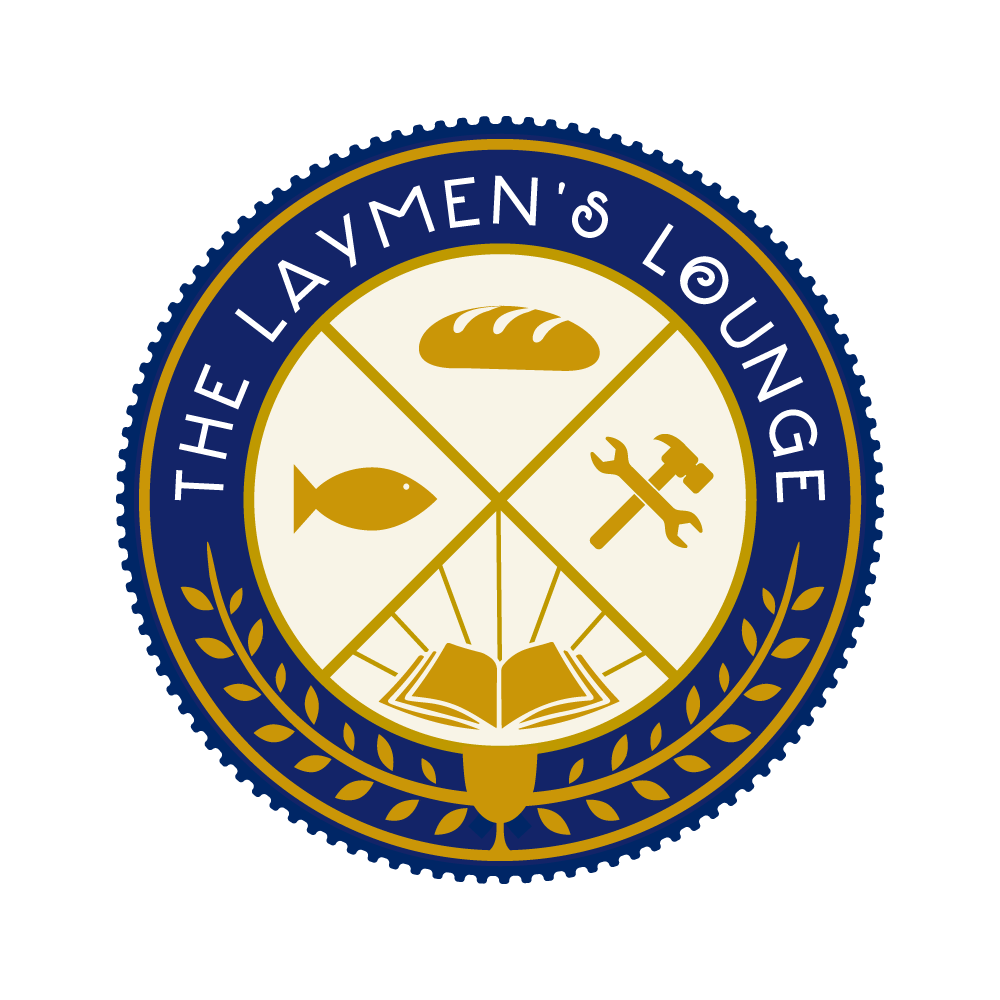by Ruben Alvarado
At the outset it’s only fair to state that for non-Dutch readers, getting to know Van Ruler is easier said than done. Not much of Van Ruler’s work has been translated. The most important such work is The Christian Church and the Old Testament, published by Wm. B. Eerdmans in 1971. Thankfully, this also happens to be one of Van Ruler’s most important books. It provides a solid introduction to his full-Bible way of thinking. Other examples of his work have been published in English translation at Common Law Review (follow this link). Here we will focus on what is perhaps his most important book, Religie en Politiek [Religion and Politics], written during the Second World War and published in 1945. We will excerpt extensively from this book and tie the excerpts together with appropriate narrative. In doing so, enough evidence should be provided to establish why “you should know Van Ruler.”
A little background: Arnold A. van Ruler (1908–1970) was a predikant (preacher) in the national Dutch Reformed church (“Hervormd” as opposed to, e.g., the Kuyperian “Gereformeerde Kerken”). In 1947 he became a professor of theology at the University of Utrecht. He was known for his broad cultural orientation and for his “public” approach to Christianity. He advocated the public role of the church and, putting that into practice, regularly broadcast Bible meditations to the nation over the radio, using the “Avro” platform (Algemene Vereniging Radio Omroep, or General Association of Radio Broadcasting). He chose Avro rather than one of the Christian broadcasting associations because he deplored the “pillarization” of Dutch society which had been introduced first and foremost by Abraham Kuyper’s Antirevolutionary Party.
As such, Van Ruler was catholic in the truest sense of the word. His vision of Christianity was of a universal, public religion to be recognized as the faith of the nation; and in fact, the only alternative to this should be persecution. “The church stands on her public right, iuris publici. This also entails that the church in her authority does not wish to be put under the state, but on a level with state authority. The church stands alongside or over against the state…. The church wishes to be recognized in this singularity – otherwise she wishes to be persecuted” (p. 277).
Of course, rather than face persecution, the modern church has chosen a third course, that of submission to the “neutral” state. This has been rationalized as a positive adjustment to inevitable realities, with all the Christian-public eggs being placed in the party-political basket. But that has proven a failure and an illusion, as we shall explore further below.
It also constitutes an abandonment of her mission. “The true church does not shun this persecution. She knows she is a militant church; and that therefore she must also fight for her public right in the state; and that this strife ripples to and fro through the ages; and that in that battle she also constantly takes formidable blows. That is why she is not silent. But when a truce is concluded and the church, forgetting her nobility as the divine-human body of Christ, understands herself to be an organ for the protection of the interests of religiously-minded people… and the state continues in its narco-demonic slumber-dream – then it is worse than if the church is massacred” (pp. 277–278).
In order to be awakened from this “narco-demonic slumber-dream,” the state in fact needs the church. Because otherwise it returns to the monistic, monolithic ground of being whereby it divinizes itself and subordinates everything to itself. “The demonization of the state consists in its self-conception as project and habitation of the gods. This is how the state understands itself in paganism. And this is in accordance with the entire pagan Seinsverständnis [concept of being], in which reality is understood and experienced as a sort of divine being which forms itself by its own divine power and molds sculpted figures from itself and loads these self-formed, extruded forms with divinity, inhabited thoroughly by the gods. The pagan state is a haunted house in which the gods rage in every possible way” (pp. 174–175).
So earthly sovereignty needs to be relativized. The church speaks the Word of God to the state and to the nation. This is the public ministry of the Word. “It is quite a happening – one in which salvation truly takes place – when the state, through the mighty Word of God, is liberated from this delusion that it is the project and habitation of the gods, that it is God himself on earth, and from the barren paralysis of this delusion arises to real service as servant of God. To this end the state needs the church, the church as the bearer of the Word of God” (p. 175).
This is an ongoing proposition: “And that does not happen just once, once and for all. That happens permanently. The church’s action in the world is one continuous witch trial. Because the truth is unceasingly expressed, the world as God’s creation and the state as God’s servant is unceasingly kept going. This is how life is guarded and saved. If the church disappears for a moment, then sooner or later the state must absolutize itself as God. And the last will be worse than the first. When the demons return to the house from which they were expelled, the disaster is incalculable. These are things that, in my view, are easy to read from the history of Europe. Only put the names of Constantine the Great and Clovis at the beginning and the names of Lenin and Hitler at the end” (p. 175).
But for all that, the state – the civil magistrate – interprets the Word independently; it does not simply follow the church’s prescriptions. This is, to use Hoedemaker’s[1] phrase, “the state with the Bible.” “The government is not bound by what the church pronounces, but is only informed thereby. When the church speaks, it does not speak to little children in kindergarten, but speaks to grown-ups in the fullness of life. To mature people, who all have the right to a private judgment regarding Holy Scripture. The Reformation put the Bible back in the hands of men, and with the Bible the truth. Well then, what applies to every church member also applies to the government. The government also got its hands on the Bible through the Reformation. And the government also has the right to have a private judgment over Holy Scripture. It has then heard the judgment of the church. And it knows of the baselines of the Word of God, as they have been preserved and summarized in the confession of the church, and from there have been adopted in the constitution as guarantees of the freedoms of the people. But then and thus does it have the Bible in its hands. We speak of a state with the Bible. And then and thus does it have its own opinion about Scripture” (pp. 287–288).
What is the alternative to this arrangement, the church by public right and the state with the Bible? This was the parliamentary method championed by Abraham Kuyper. Instead of the church interacting with the Christian state, we have Christians, as one group of citizens among many, interacting with and through the neutral state. This is said to be a requirement of the times in which we live. There can be no confession of faith in public life; we must accept formal neutrality, for the state cannot take sides in matters of religion. Kuyper thought that an indirect influence of Christianity through Christians, rather than a formal confession of Christianity as the public religion, would have the desired effect. “[Kuyper] knew of only one way by which the church could approach the state, to say something – to wit, the eternal principles of God’s Word for political and national life – to the government. And that was the parliamentary way. The political party as configuration of the church as organism, with as backdrop the Free University, where legal science in particular had to be studied in order to bring to bear the eternal principles for political life – the political party was for him the only possible positive relation of church and state” (p. 265).
Van Ruler labels this personalism, and calls it to account: “Personalism believes that there can only be talk of Christian politics in the sense that Christians concentrate on the scientific study of political questions, organize themselves into a tightly knit party and try to conquer the government castle, in order then, well, to do what exactly? asks Hoedemaker, and he adds: I really don’t know.” They do not know what to do, because they are bound to a constitution which insists on neutrality. There can be no specifically Christian policy pursued; everything must be translated into the key of human rights, human good, human autonomy. “Those Christians who become government personnel and can be receptive to and responsible for God’s Word only as such, therefore not as government but as government personnel, find in the government castle a neutral constitution to which they are bound hand and foot.” And as a result, Christian politics only ends up being humanist politics with a pious face. “Hence, the entirety of pre-1940 Christian politics has been one big show, not to use a worse word. The great objection to this personalist solution to the problem is that the question of neutrality is concerned with the constitution and the basic structure of state institutions. The only Christian thing that Christian officials can do on the basis of a neutral constitution is to distribute the positions among their Christian acquaintances and friends. As long as the constitution is left untouched, one is acting untruthfully if one pretends to practice Christian politics” (pp. 245–246).
Once Christians separate Christianity from its organic connection to the nation, Christianity becomes one interest group among many, and the secular state is in fact established, regardless of the rhetoric and bombast about Christian principles, to the damage of church, state, and nation. “Sadly, this medium of prophecy, the political party, is virtually the only one yet known to us. It is not my business to record the untold damage that this medium has visited on the church, the nation, and the state. We only mention this, that it has brought discredit upon the church, hopelessly divided the nation, and left the state in its neutral slumber under the guise of Christian politics. And there will only be healing of church and state when we make ourselves free of the embrace of this boa constrictor” (pp. 265–266).
What Van Ruler realized already in 1945, but is becoming clear to us muddleheaded thinkers only now, is that the entire framework of liberal democracy, with its equal rights, its freedom of this, that, and the other, is but an evanescent interim that will soon give way to some form or other of post-neutral confessionality. Neutrality is only a veil, a game that is now up, and the race is now on to see who will fill the vacuum that is the reality behind the façade of neutrality. “The entire current of cultural thinking of our time would like to erase this idea of neutrality. This could be demonstrated in many areas. But it also applies to the state. In contrast to the neutralization process of the nineteenth century, the twentieth century has set in motion a totalization process with regard to the state which, if all the signs are not deceiving us, will no longer be stoppable. In the previous century the state wanted to make itself as superfluous as possible; now the reverse is the case, and the state is busy making itself as indispensable as possible. And it is truly not only the political and social misère [distress] of democracy that is driving this; it is above all the energetic will to overcome the atomization of life that has seized humanity. Truly this is not just a political experiment. The roots of it go much deeper. After all, it rests in a new Seinsverständnis [concept of being] which is busy making headway. The realization of the Geworfenheit [thrown-ness] of existence, of the great connections and bonds in which man alone is man, of body and blood which claim their rights vis-à-vis the spirit, and so many other realizations are involved. Taking this into account, one can safely say: neutrality, even of the state, and such neutrality in the deepest sense of the word as neutrality in religion, neutrality vis-à-vis the truth, is an outdated position. Anyone who advocates the neutral state is not up to date” (p. 247).
Neutrality is no longer tenable, which means that we as citizens are faced with a stark choice: “whether Christianity or paganism will act as the source of the moral and spiritual forces necessary for the political shaping of life. Verily there is no more room for neutrality in 1945. One ought either to be a positively professing Christian or an equally radically convinced pagan. The national, the European, the general human constellation of things can no longer tolerate anyone standing there indifferently or living under the delusion that humanism is an equally tenable possibility. We can no longer live on the leftovers of former, confessing times. Those leftovers have been radically consumed. Things have to be rebuilt. In this respect, the idea of neutrality is the standpoint of despair” (pp. 247–248).
There is nothing left for it; and if this was clear to Van Ruler in 1945, it is even more clear to us in the midst of the cultural collapse of the West. Our current post-Covid crop of progressives are fond of the slogan Build Back Better, as if the way we were was not good enough for them. Be careful what you wish for! “And from all of this it will then be clear that we certainly cannot suffice with Christian moral teaching. Certainly not with the remnants of Christian moral teaching which still exist as common property, as the foundations of our culture, as some leftovers which can be warmed up. The post-war period could very easily become one big leftover day. More often than not, a revolution has been followed by a restoration. But even full-orbed Christian moral teaching is insufficient in itself for the life of the state and the nation. The full Christian confession, the confession of Christ, belongs there because the things especially of the state can only be understood in messianic light, in the regnum Christi, of Christ and of the action of God in Him. A new community, political and social and economic and cultural and moral and spiritual, can only really be built when the sacrament of baptism is recognized as the foundation, and the sacrament of the Lord’s Supper as the center, of national and political life” (p. 248).
This is why you need to know Van Ruler. Who else has the gumption to put the matter so clearly?
[1] Dr. P. J. Hoedemaker, Kuyper’s one-time cobelligerent and later antagonist, and Van Ruler’s most important inspiration.

Ruben Alvarado is an independent scholar, publisher, and translator living to the east of Arnhem in the Netherlands. His writings, which span a wide variety of issues, can be found at WordBridge Publishing, Common Law Review, and Common Law Economics.



Van Ruler almost has it. Here’s the way we (disestablishmentarians) should respond: 1. Civil governance’s only legit God-ordained tool is the sword, and in the new covenant era it is not given the calling of promoting the Christian religion; 2. Civil governance need not be a “confessional” endeavor promoting either the Christian religion or an antiChristian one, or otherwise impossibly religiously “neutral.” This is a false tri/dilemma. For civil governance to be at root guided by Christian religion, and therefore not “neutral”, in fact involves its not promoting religion through the sword; 3. Basically, the sort of civil governance at… Read more »